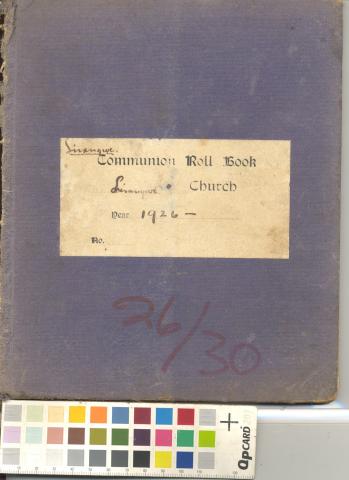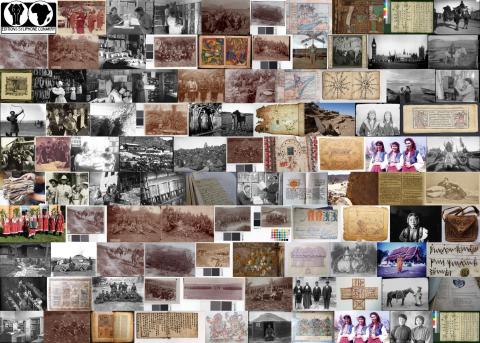
Aims and objectives
This research is a follow up to the pilot project EAP714 that surveyed historic ecclesiastical archives in seven major churches in Malawi. As the pilot project revealed the existence of huge volumes of unique records dating from the 1880s but in very perilous conditions, this major research project aims at digitising 125,000 pages of documents from Nkhoma Synod and Blantyre Synod, and relocating the records to the National Archives. The country’s endangered church archives will be safeguarded, made known locally and internationally, and widely accessible to the general public.
Malawi, formerly Nyasaland, was a predominantly oral society with no written records generated until the arrival of the British missionaries in the early 1860s. Between 1861 and 1891, before the establishment of the Colonial Administration, different Churches were established in Malawi and influenced people in many ways as they administered the Nyasaland territory for thirty years.
The missionaries’ goal was to convert the natives to Christianity through the teachings of the Holy Bible by establishing as many mission stations as possible in order to reach out to as many natives as possible. In order to achieve this goal, the missionaries had first of all, to learn and master the local languages for better communication with their would-be flocks. Having mastered the languages, the missionaries then translated the Biblical scriptures into the local languages.
Through establishment of the village schools, the Free Church of Scotland (1875) and the Established Church of Scotland (1876) missionaries were able to carry out mass-literacy campaigns. Such campaigns were aimed at teaching the predominantly illiterate people how to read and write so that, in turn, they could promote the spread of Christianity. Other foreign church missions and indigenous churches were established between 1891 and 1964 when Malawi gained its political independence and they equally played an important role in the social-economic development of the country.
The Churches generated important records in the form of accounts, correspondence, day books, deacon’s diaries, manuscripts, maps, minutes, minute books, miscellaneous, nominal rolls (communicants rolls, baptismal rolls and catechumens rolls), photographs, registers (birth, death, expelled members and village schools), reports and statistics. These records are unique in that they are the earliest written documents in the country and they illuminate Malawi’s pre-colonial past more than any other records. Additionally, they complement the country’s official records, thereby sealing most of the gaps in the country’s recorded pre-independence history.
The date-range of the records targeted for this project is 1861-1964. The missionaries first ‘governed’ the country for thirty years before the Colonial Administration took over in 1891. During the colonial period, the Church continued to play an important role in the colonial administration. For instance, they continued to provide education services up until 1929 when the colonial administration took over this responsibility, and a member from the Church sat on the Legislative Council from 1907 up to 1961. From the 1950s involvement of indigenous Malawians in government and administration was minimal and only at lower levels.
After independence, indigenous Malawians took over the leadership of various Churches and inherited the records that had been generated by their foreign predecessors. Due to poor storage conditions prevailing in many mission centres in Malawi coupled with a lack of skills for proper management of the records, most of this precious documentary heritage has been damaged and lost. Moreover, a bulk of these endangered ecclesiastical archives is inaccessible to the general public owing to the absence of a catalogue or guide to the material.
The pilot project established that none of the churches except the Livingstonia Synod have an archive officer/clerk to manage their historical records; and it has also established that, except for those at Livingstonia Synod, all the church collections are kept in very poor conditions that have led to a considerable quantity to be permanently damaged. The pilot project further established that, without preservation measures, these legacy ecclesiastical records will get further damaged and remain obscure and inaccessible.
Outcomes
This research is a follow-up to our pilot project that surveyed historic ecclesiastical archives in seven major churches in Malawi. The pilot project revealed existence of huge volumes of unique records dating from the 1880s but in very perilous conditions. This major research project aimed at digitising 120,000 images of Nkhoma Synod and Blantyre Synod records, which were but a small fraction of the vulnerable church records, which we had seen. The project also relocated some of the records to the National Archives. The ultimate aim of the project was to safeguard the country’s endangered church archives, making them known locally and internationally, and widely accessible to the public.
Unfortunately, the EAP team was unable to match the images with the metadata received and have been unable to make this content available.



